President Tsai Ing-wen (蔡英文) yesterday expressed her willingness to hold “meaningful dialogue” with Beijing so that peace and stability can be maintained across the Taiwan Strait.
“At this stage, the most pressing cross-strait issue is to discuss how we can live in peace and coexist based on mutual respect, goodwill and understanding,” Tsai told Double Ten National Day participants.
“As long as the Beijing authorities are willing to resolve antagonisms and improve cross-strait relations, while parity and dignity are maintained, we are willing to work together to facilitate meaningful dialogue,” she said.
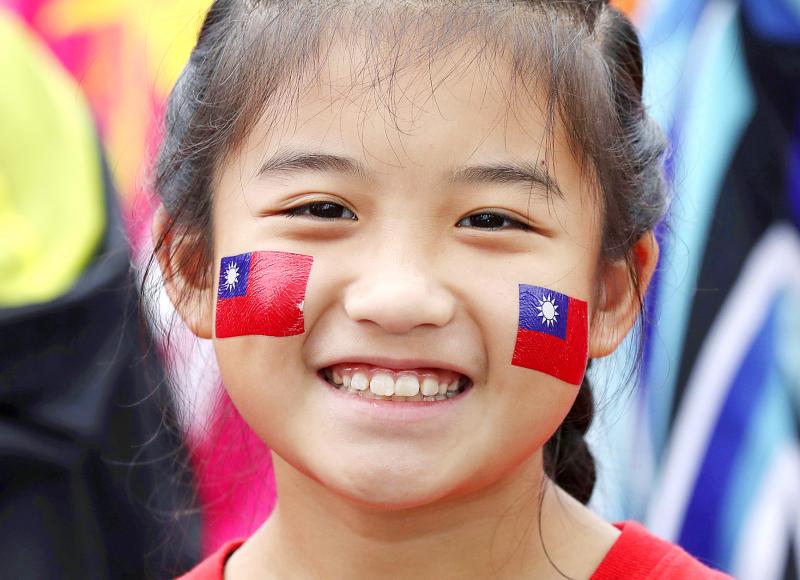
Photo: Chiang Ying-ying, AP
Tsai’s statement follows a further deterioration of already sour cross-strait relations as Taiwan and the US have shown closer engagement, such as high-level visits by US officials and more arms sales to Taiwan.
Beijing has responded by conducting more military exercises near Taiwan, including flying its warplanes into Taiwan’s air defense identification zone.
Tsai said that maintaining adequate defense capabilities is the only way for Taiwan to guarantee national security and regional peace.
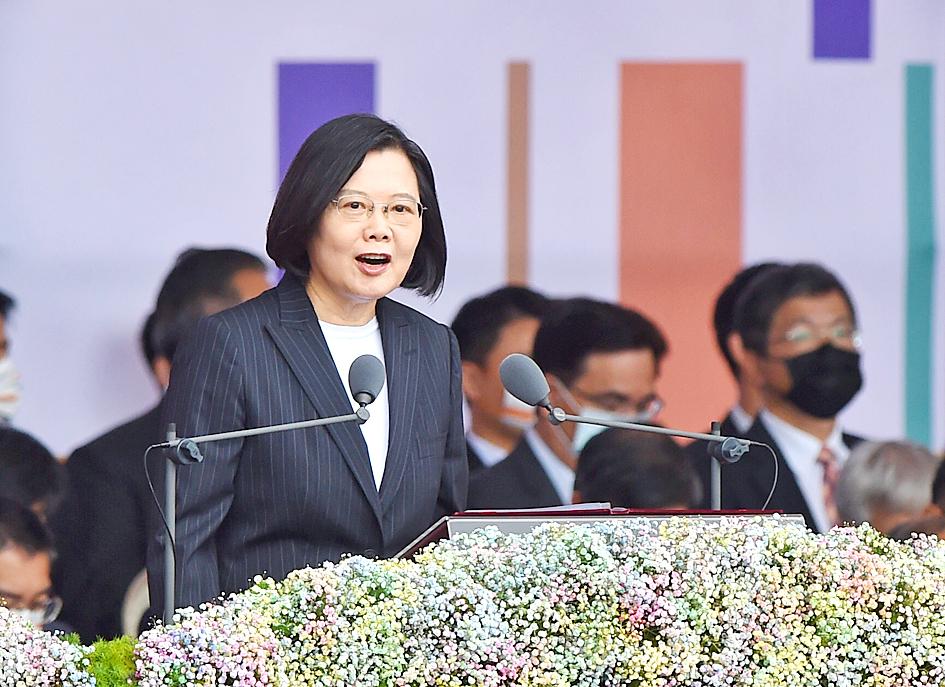
Photo: Liu Hsin-de, Taipei Times
“We will continue to modernize defensive combat capabilities and accelerate the upgrading of our asymmetrical capabilities to deal with military expansion and provocation from the other side of the Taiwan Strait,” she said.
Tsai said that Taiwan would continue to neither fear nor seek war to avoid potential conflicts due to miscalculations, saying that maintaining stability is in the best interests of both sides of the Strait.
“We are committed to upholding cross-strait stability, but this is not something Taiwan can shoulder alone,” she said. “It is the joint responsibility of both sides.”
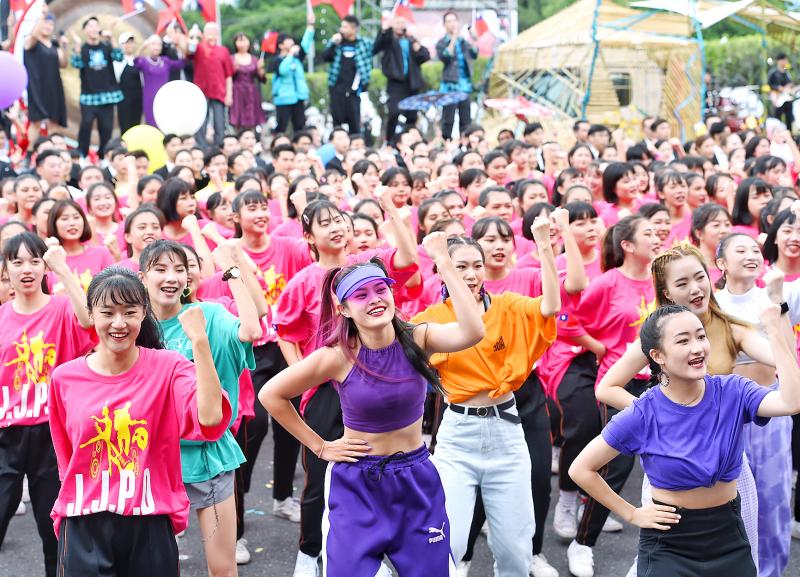
Photo: Fang Pin-chao, Taipei Times
Tsai expressed the hope that China would genuinely change, saying that Chinese President Xi Jinping (習近平) pledged at last month’s UN General Assembly that Beijing would never seek hegemony or expansion.
Tsai also said that her administration would pursue three major strategies to boost the local economy, as Taiwan has done better than many other countries at fighting COVID-19.
“Because the pandemic was properly controlled, Taiwan became one of the few countries in the world that maintained positive economic growth,” Tsai said.
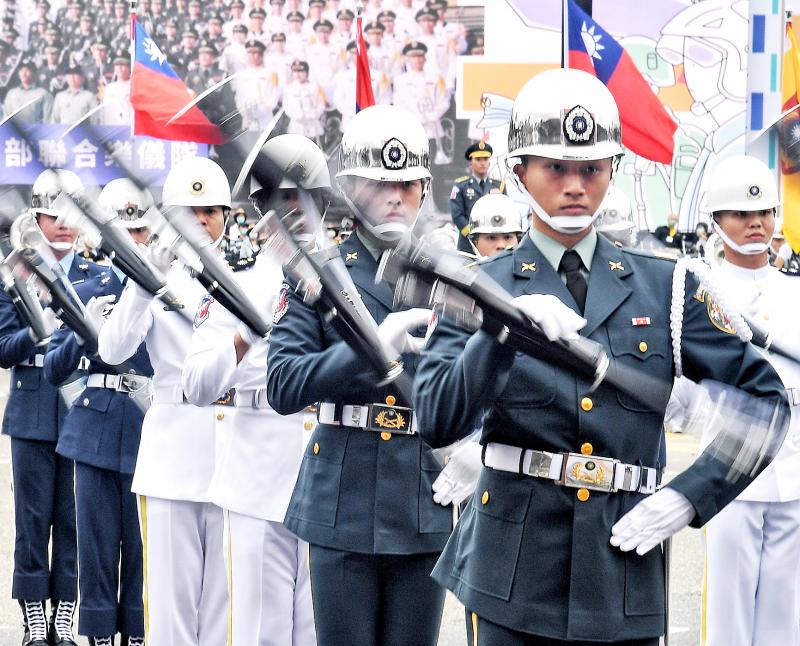
Photo: CNA
“We have also prepared for economic development in the post-pandemic era,” she said, referring to six core strategic industries that she announced earlier this year: the Internet of Things, artificial intelligence, information security, biotech applications, national defense and renewable energy development.
Tsai said that the government would continue to advance the Forward-looking Infrastructure Development Program, which covers rail transport construction, water improvement, digital development, urban and rural development, improvement of childcare environments and enhanced food safety.
At a time when global supply chains are being restructured, Taiwan would fully participate in reorganizing them, Tsai said.
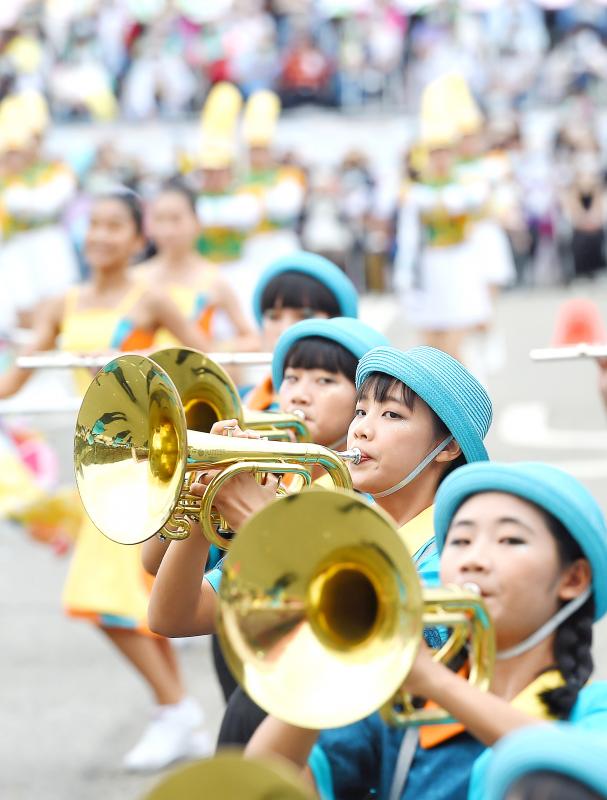
Photo: Fang Pin-chao, Taipei Times
“The rapid dismantling and realignment of global supply chains is now irreversible, and Taiwanese businesses around the world are moving toward segmented markets, production base migration and reshoring to invest in Taiwan at an ever-faster pace,” Tsai said.
“We will link all of these related policies and programs, while integrating government and private sector resources with cross-department capabilities to achieve full and comprehensive participation in the realignment process, making Taiwan an indispensable force in global supply chains,” she added.
The nation would transform itself into a hub for international capital, talent and digital technology, Tsai said, adding that investing effort into this upgrade is needed before Taiwan can help reorganize the global supply chain.
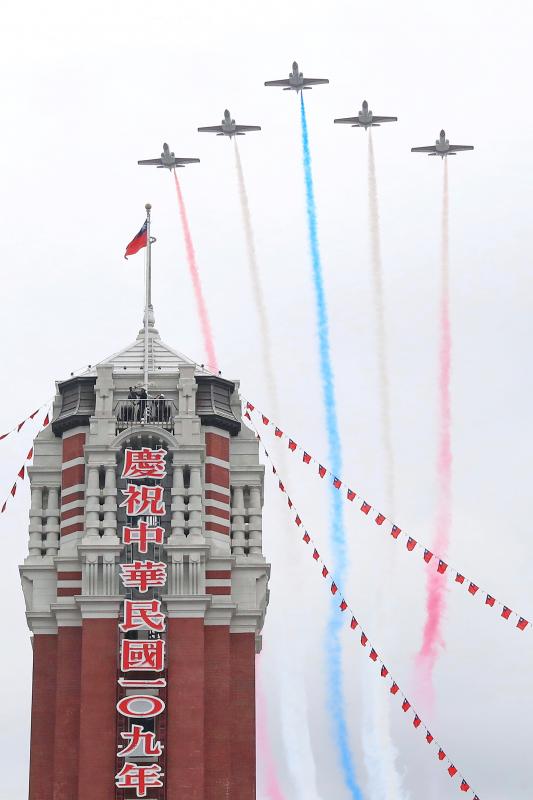
Photo: CNA
The government would do its best to balance economic and social development, handling risks resulting from unbalanced development and repercussions likely to rise from massive increases in capital supply, she said.
Tsai touted the government’s achievements at international economic cooperation, citing last week’s signing of a framework with the US to strengthen infrastructure finance and market-building cooperation.
Under the agreement, Taiwan is expected to join the US in infrastructure projects in the Americas and the Indo-Pacific region, she said.
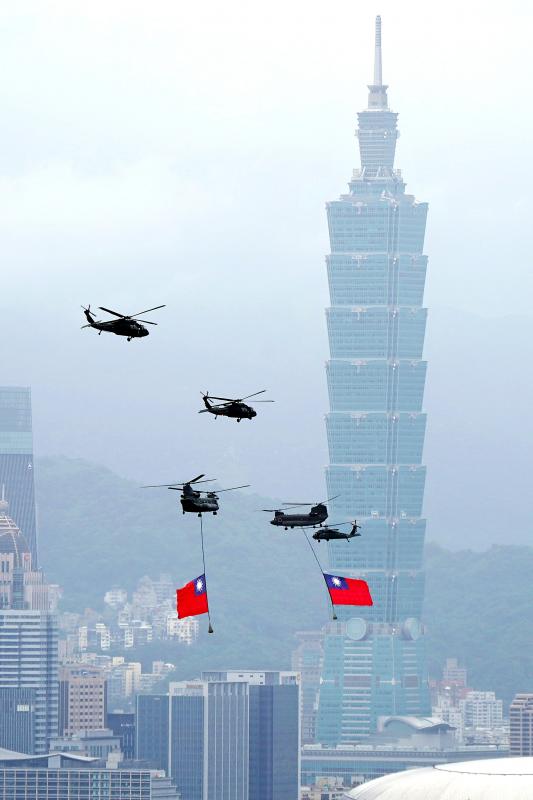
Photo: CNA
Taiwan and the US plan to hold high-level economic talks to identify opportunities for cooperating on the realignment of global supply chains, technology advancements and infrastructure development, among other areas, Tsai added.
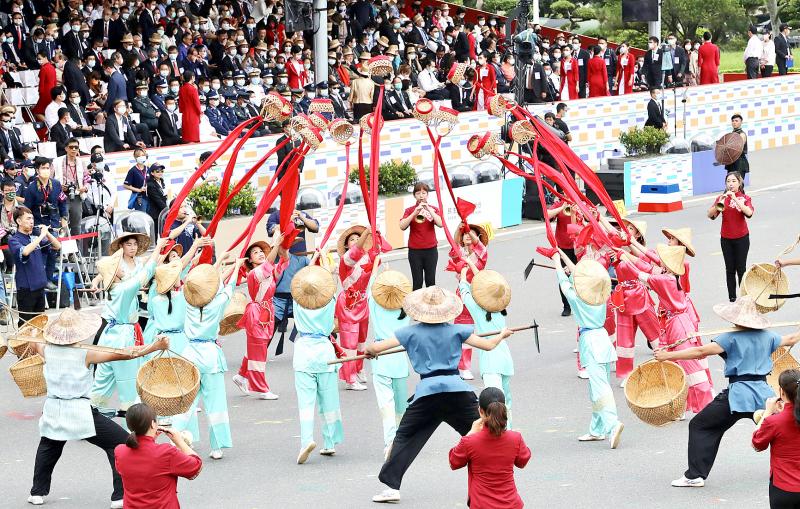
Photo: CNA
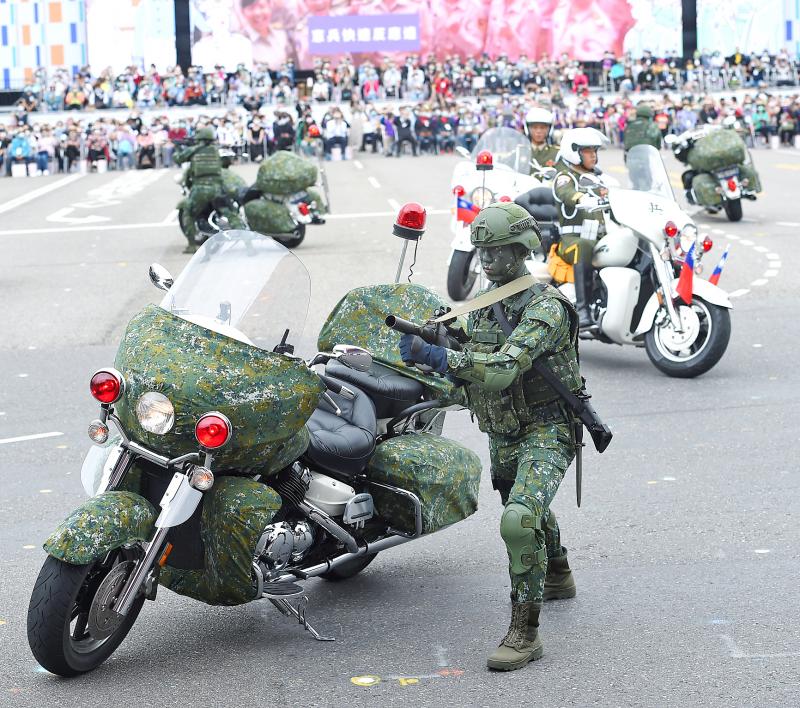
Photo: CNA
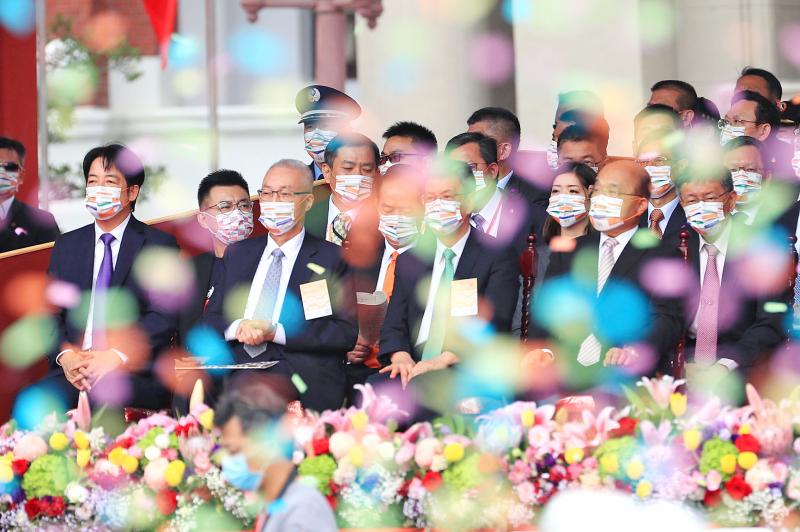
Photo: CNA

Taiwanese actress Barbie Hsu (徐熙媛) has died of pneumonia at the age of 48 while on a trip to Japan, where she contracted influenza during the Lunar New Year holiday, her sister confirmed today through an agent. "Our whole family came to Japan for a trip, and my dearest and most kindhearted sister Barbie Hsu died of influenza-induced pneumonia and unfortunately left us," Hsu's sister and talk show hostess Dee Hsu (徐熙娣) said. "I was grateful to be her sister in this life and that we got to care for and spend time with each other. I will always be grateful to

UNITED: The premier said Trump’s tariff comments provided a great opportunity for the private and public sectors to come together to maintain the nation’s chip advantage The government is considering ways to assist the nation’s semiconductor industry or hosting collaborative projects with the private sector after US President Donald Trump threatened to impose a 100 percent tariff on chips exported to the US, Premier Cho Jung-tai (卓榮泰) said yesterday. Trump on Monday told Republican members of the US Congress about plans to impose sweeping tariffs on semiconductors, steel, aluminum, copper and pharmaceuticals “in the very near future.” “It’s time for the United States to return to the system that made us richer and more powerful than ever before,” Trump said at the Republican Issues Conference in Miami, Florida. “They

TAIWAN DEFENSE: The initiative would involve integrating various systems in a fast-paced manner through the use of common software to obstruct a Chinese invasion The first tranche of the US Navy’s “Replicator” initiative aimed at obstructing a Chinese invasion of Taiwan would be ready by August, a US Naval Institute (USNI) News report on Tuesday said. The initiative is part of a larger defense strategy for Taiwan, and would involve launching thousands of uncrewed submarines, surface vessels and aerial vehicles around Taiwan to buy the nation and its partners time to assemble a response. The plan was first made public by the Washington Post in June last year, when it cited comments by US Indo-Pacific Commander Admiral Samuel Paparo on the sidelines of the Shangri-La Dialogue

REMINDER: Of the 6.78 million doses of flu vaccine Taiwan purchased for this flu season, about 200,000 are still available, an official said, following Big S’ death As news broke of the death of Taiwanese actress and singer Barbie Hsu (徐熙媛), also known as Big S (大S), from severe flu complications, the Centers for Disease Control (CDC) and doctors yesterday urged people at high risk to get vaccinated and be alert to signs of severe illness. Hsu’s family yesterday confirmed that the actress died on a family holiday in Japan due to pneumonia during the Lunar New Year holiday. CDC Deputy Director-General Tseng Shu-hui (曾淑慧) told an impromptu news conference that hospital visits for flu-like illnesses from Jan. 19 to Jan. 25 reached 162,352 — the highest